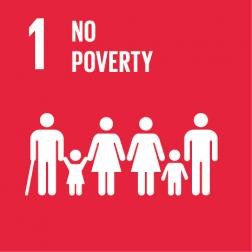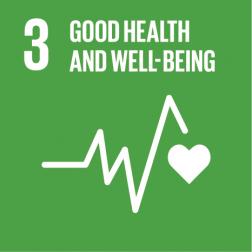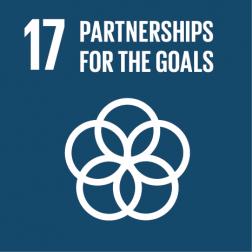General information
Title
IMT ITG Programme 2014-2016 Ethiopie:Collaborative Agreement for Research and Training (CART)
ID
XM-DAC-2-10-3016029
Start date
End date
Activity status
Completion
Budget
€463.083
Actor
ITM Institute of Tropical Medicine ANTWERPEN - ANVERS
Country
ETHIOPIA
Sector
Health - Medical education/training
Aid type
Core support to NGOs, other private bodies, PPPs and research institutes
Fragile state
Yes
Least developed country
Yes
Budgetline
54 22 452539 ITM/ITG/IMT Subsidies to Institute of Tropical Medicine in Antwerp (ex 54223334)
Finance type
GRANT
Tied status
No
Flow type
ODA
SDGs
Body
General
To enhance the research capacity and evidence based medical practice in tropical and poverty related diseases in Ethiopia A programme to build capacity in developing countries for research, training and policies in human and animal health in order to strengthen the rational basis and ownership of their health systems
Results
To contribute to the establishment of a research and training center in CMHS (UoG) on tropical and poverty-related diseases
Other
90-100%
Laboratory quality & Biobanking : three trainings on good clinical practice (GCP)/and good clinicallaboratory practice (GCLP) were conducted and three field visits for onsite training were done. SOPs are now available for all research linked laboratory procedures in the leishmaniasis laboratory and laboratory analyses plans have been drafted. At a UoG satellite hospital, clinical and laboratory staff have been trained as well, and the laboratory has been enhanced. The leishmaniasis laboratory now serves as a quality laboratory for UoG, and will allow UoG to conduct high quality clinical and laboratory research to improve the knowledge management of tropical and poverty-related diseases in Ethiopia.
Laboratory platforms : As to molecular testing, skills on PCR were consolidated and a new procedure to standardize DNA extraction has been introduced. The head of the laboratory received a short training on that at ITM. Three field support visits were organized. A device has been procured to automate some manual extraction steps and to minimize the risk of PCR contamination A field evaluation visit was done to assess the current capacity for immunological testing at the UoG laboratories was done and a plan for increasing capacity has been developed. Several key immunological assays have been introduced, staff has been trained and the necessary material has been procured. Capacity to store cells for immunological assays has been established (cryofacility). Research projects linked to the molecular and immunology platform have been initiated.
Research training and projects : Remote and on site coaching in developing research proposals and protocols, data analysis and paper writing was complemented with four short research training visits at ITM by UoG staff. In 2016, a total of seven clinical and laboratory research projects have been conducted.
Dissemination of scientific findings : Four scientific publications have been published and five more are in the pipeline. Seven abstracts were accepted at the sixth Leishmaniasis World Conference, including two oral presentations. Three UoG key members attended the conference (all female) and present their research findings. One PhD candidate proceeded well with his research on molecular aspects of tuberculosis.
Antibiotic stewardship & microbiology : The antibiotic stewardship committee continued to carry-out baseline surveys and clinical audits necessary to provide the evidence for the development of antibiotic prescription, use and dispensing guidelines and recommendations.
General conclusion on the final year ; 2016 was a very busy year with numerous trainings, visits, scientific studies and laboratory support activities. While the political situation influenced some activities. UoG has now the capacity to conduct quality laboratory and clinical research projects and numerous projects take place, providing opportunities or UoG Master and PhDs. The antibiotic stewardship committee is now well-established, although support to the microbiology laboratory will need additional time.




